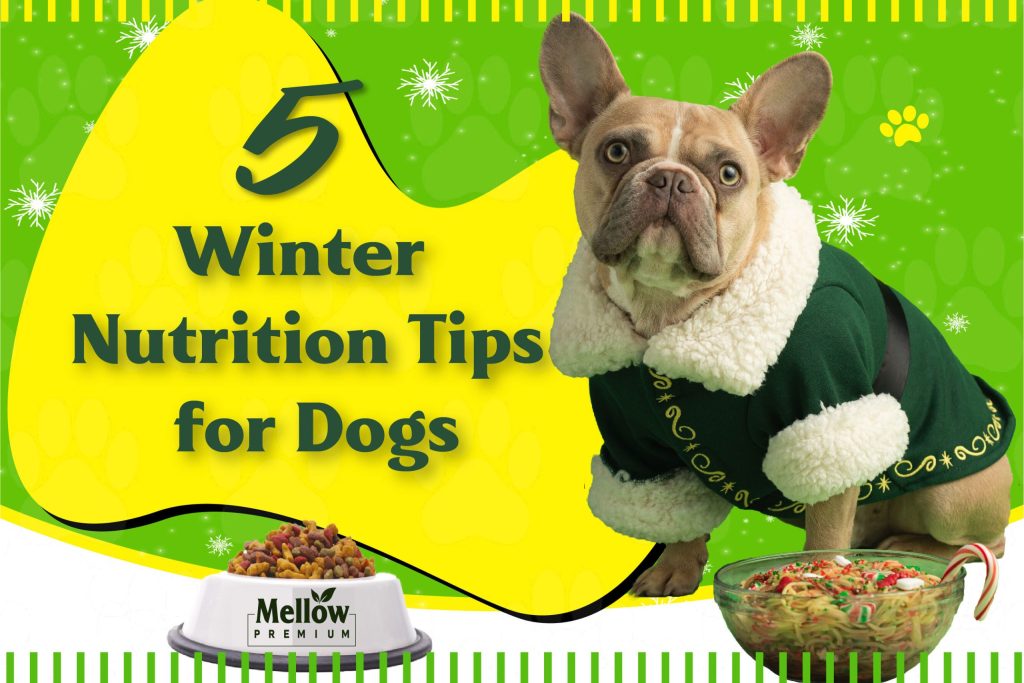Winter is the season of spending most of our days indoors, enjoying our leisure time wrapped in a warm cozy blanket. It is also the season when we feel less energetic and tend to gain weight. But, we aren’t the only ones affected by winter in this way. Dogs also experience these changes. While most owners aren’t aware of these changes, it’s important to emphasize the need to adapt your dog’s diet in winter to ensure they receive all the nutrients they need without gaining excess weight. Here are 5 tips to help you with that!
Manage Calorie Intake
Dogs with long-haired or layered coats are usually very energetic in winter. They love playing, running, and taking walks in the snow. If this sounds like your dog, you need to increase their calorie intake to match the energy they spend. But, instead of increasing their portions, you should feed them calorie-dense food to prevent weight gain.
On the other hand, small and short-haired breeds tend to spend the winter days indoors, snuggling in their bed or sitting by the fire. If your dog is one of these snugglers, you need to reduce the calorie intake to prevent gaining weight.
Reduce the Number of Treats
If you notice your dog is gaining weight besides cutting down their calorie intake, it’s time to reduce the number of treats to a minimum. Additionally, you should consider the type of treats you feed your dog since not all are healthy and natural. Replace the unhealthy treats with 100% natural and nutrient-dense treats like yak dog chews. You can also give your dog fresh treats like apple slices, carrots, and watermelon or cooked or steamed veggies like broccoli and potato.
Add Dog Dental Sticks
Dog dental sticks are rich in vitamins, minerals, omega-3 fatty acids, fibre, and protein and are low in fat. They support your dog’s growth and dental health and ensure its coat and skin are always healthy. They are made of all-natural ingredients and don’t contain any additives, binders, or artificial flavours and colours. Plus, they keep your dog busy for some time.
Add Supplements
Most of us take supplements during the winter because we don’t meet the recommended daily intake of nutrients. Dogs need supplements, too, to stay healthy during the winter. There are many types of pet supplements for dogs, from multivitamins and fish oil to supplements for joints and hips and probiotics.
Keep Your Dog Hydrated
Last but not least, don’t forget to fill your dog’s water bowl. Your dog needs water to stay hydrated and healthy although the weather is cold. If you notice your dog doesn’t drink enough water, you should start adding some to its food.
Summary
Winter isn’t only a holiday season. It’s also a season that changes your dog’s metabolism, energy, and behaviour. That’s why you need to adapt their nutrition to match their needs. Following our 5 winter nutrition tips will help you create a diet plan for your dog that is healthy and nutritious.
 CA
CA

